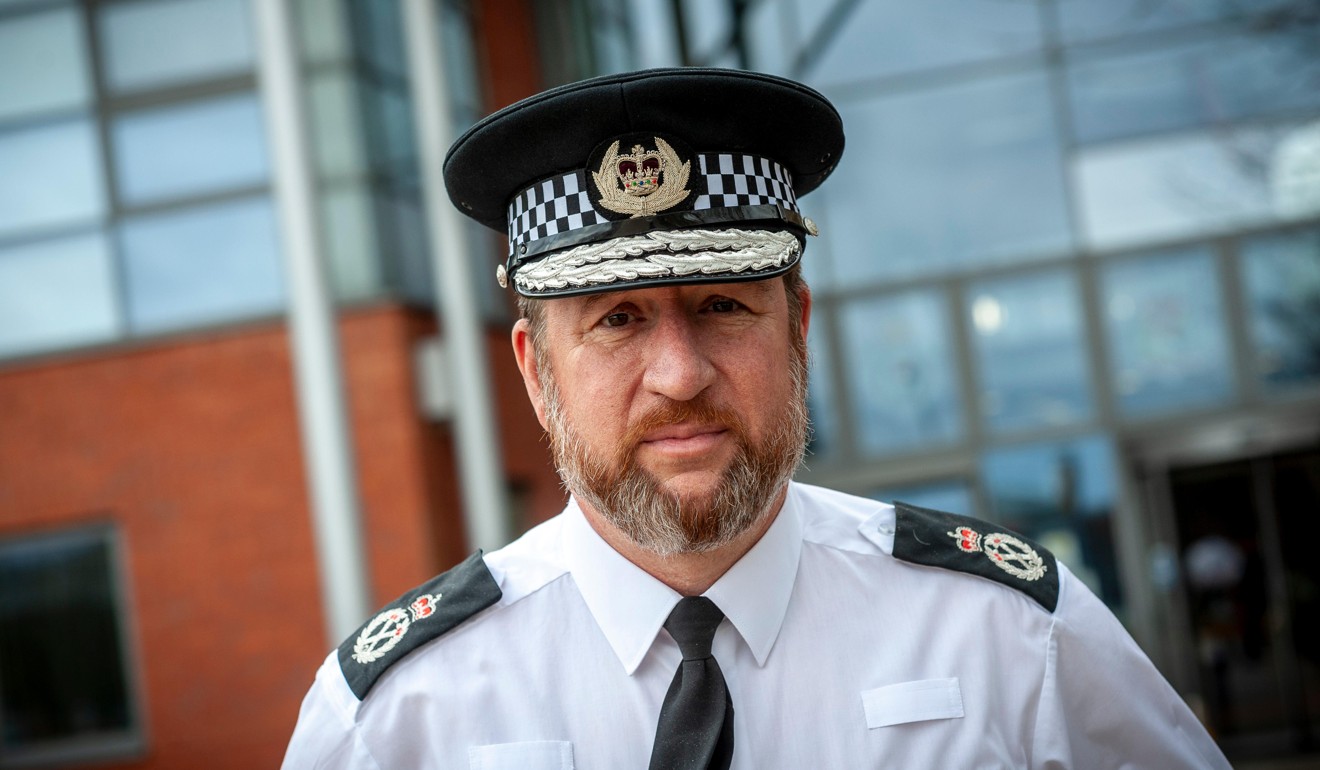
Senior UK policeman Simon Bailey calls for social media boycott ‘to protect children’ from abuse
- Norfolk’s chief constable said fines don’t work but firms may be forced into action ‘when their brand is damaged’
- Bailey said he is concerned the spread of 4G and 5G networks worldwide could open up more opportunities for the sexual exploitation of children
A public boycott of social media may be the only way to force companies to protect children from abuse, the country’s leading child protection police officer has said.
Simon Bailey, the National Police Chiefs’ Council lead on child protection, said tech companies had abdicated their duty to safeguard children and were only paying attention due to fear of reputational damage.

The senior officer, who is Norfolk’s chief constable, said he believed sanctions such as fines would be “little more than a drop in the ocean” to social media companies, but the government’s online harms white paper could be a “game changer” if it led to effective punitive measures.
Bailey suggested a boycott could be one way to hit big platforms, which he believes have the technology and funds to “pretty much eradicate the availability, the uploading, and the distribution of indecent imagery”.
Despite the growing problem, Bailey said he had seen nothing “that has given me the confidence that companies that are creating these platforms are taking their responsibilities seriously enough”.
“Ultimately I think the only thing they will genuinely respond to is when their brand is damaged,” he told the Press Association. “We have got to look at how we drive a conversation within our society that says do you know what, we are not going to use that any more, that system or that brand or that site because of what they are permitting to be hosted or what they are allowing to take place.”
In every playground there is likely to be someone with pornography on their phone, Bailey said as he described how a growing number of young men are becoming “increasingly desensitised” and progressing to easily available illegal material.
It feels like social media sites treat child safeguarding crises as a bad news cycle to ride out, rather than a chance to make changes
Society is “not far off the point where somebody will know somebody” who has viewed illegal images, he said. There has been a sharp rise in the number of images on the child abuse image database from fewer than 10,000 in the 1990s to 13.4m, with more than 100 million variations of these.
Last month, the government launched a consultation on new laws proposed to tackle illegal content online. The white paper legislated for a new statutory duty of care by social media firms and the appointment of an independent regulator, which is likely to be funded through a levy on the companies. It was welcomed by senior police and children’s charities.
Bailey believes if effective regulation is put in place it could free up resources to begin tackling the vaster dark web. He expressed concern that the spread of 4G and 5G networks worldwide would open up numerous further opportunities for the sexual exploitation of children.

Speaking at a conference organised by StopSO, a charity that works with offenders and those concerned about their sexual behaviour to minimise the risk of offending, of which Bailey is patron, he recently said plans from Facebook’s Mark Zuckerberg to increase privacy on the social network would make life harder for child protection units. But, he said: “There is no doubt that thinking is shifting around responsibility of tech companies. I think that argument has been won, genuinely.”
Andy Burrows, the National Society for the Prevention of Cruelty to Children’s associate head of child safety online, said: “It feels like social media sites treat child safeguarding crises as a bad news cycle to ride out, rather than a chance to make changes to protect children.”

